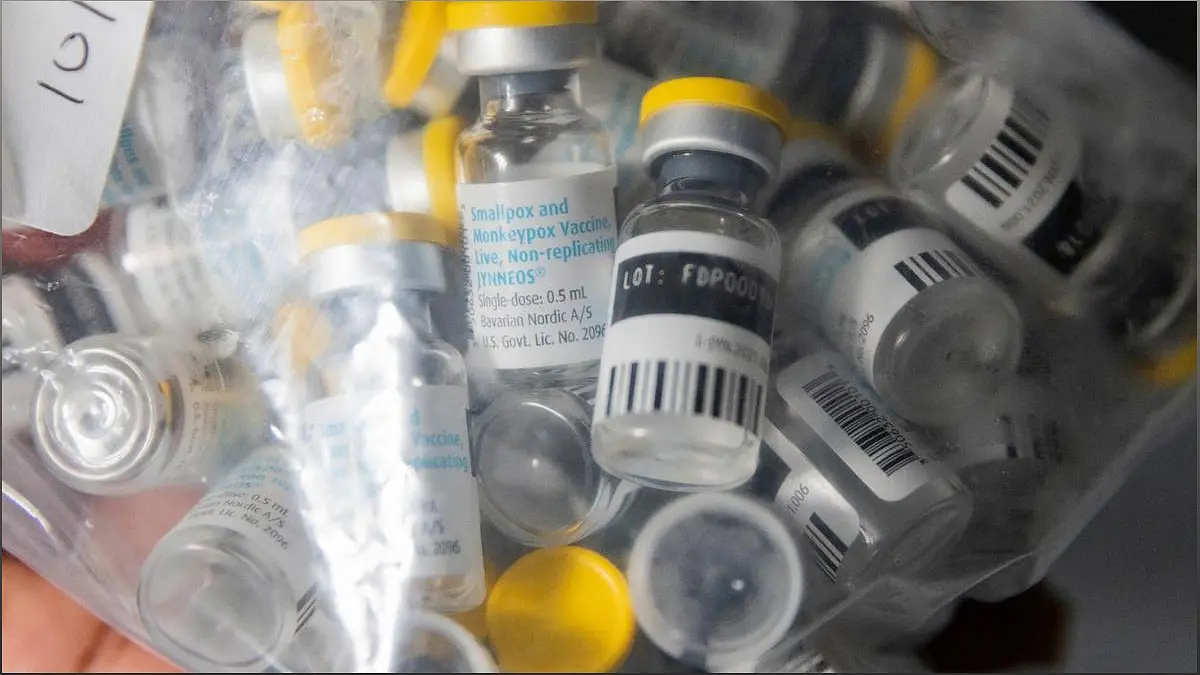Unveiling the Sexual Transmission of Monkeypox: A Complication in Disease Control
Did you know that the World Health Organization has confirmed the sexual transmission of monkeypox in Congo? This groundbreaking revelation has the potential to complicate efforts in controlling the disease. Join me as we delve into the details of this unusual outbreak and explore the risks it poses to sexual networks. Let’s shed light on the significance of this discovery and the urgent need to take monkeypox more seriously.
The Confirmation of Sexual Transmission
Unveiling the groundbreaking confirmation of sexual transmission of monkeypox in Congo
In a significant development, the World Health Organization has confirmed the occurrence of sexual transmission of monkeypox in Congo. This revelation came to light when a resident of Belgium, who had visited Congo and engaged in sexual relations with other men, tested positive for monkeypox. Subsequently, five of his sexual contacts also contracted the disease, marking the first definitive proof of sexual transmission of monkeypox in Africa.

This discovery raises concerns and complicates efforts to control the disease. Monkeypox, which is primarily transmitted from infected rodents to humans, has been endemic in parts of central and west Africa. However, the recent outbreak in Congo, with its unusual characteristics and the involvement of sexual networks, highlights the potential for the disease to spread more widely.
Virologist Oyewale Tomori warns that the reported figures of monkeypox cases are likely an underestimate. He suggests that sexual transmission of monkeypox may already be established in other parts of Africa, but due to anti-LGBTQ+ laws in several countries, affected communities may be hiding the disease, making it harder to control.
The Risk of Monkeypox Spreading
Exploring the significant risk of monkeypox spreading within Africa and globally
The recent outbreak in Congo has already infected over 12,500 people and claimed the lives of approximately 580 individuals, making it the largest-ever outbreak in the country’s history. The implications of sexual transmission of monkeypox are alarming, with the potential for the disease to spread to other countries in Africa and even globally.
The risk of monkeypox spreading is further exacerbated by the lack of vaccination campaigns in Africa compared to Europe and North America. Despite the thousands of cases in Congo, no vaccines have been provided. This disparity in resources and preventive measures raises concerns about the ability to effectively control the spread of the disease.
It is crucial to recognize the gravity of the situation and take immediate action to address the risk of monkeypox spreading. The confirmation of sexual transmission in Africa should serve as a wake-up call to prioritize vaccination campaigns and implement comprehensive strategies to prevent further outbreaks.
Understanding Monkeypox and its Symptoms
Delving into the characteristics of monkeypox and its associated symptoms
Monkeypox is a viral disease that manifests with symptoms similar to smallpox, although it is less severe. The virus causes fever, chills, rash, and lesions that typically appear on the face or genitals. These symptoms can be distressing and may lead to complications, especially in vulnerable populations.
It is important to note that monkeypox can be transmitted through direct contact with infected animals, such as rodents, or through human-to-human transmission. The recent confirmation of sexual transmission adds a new dimension to the understanding of how the disease spreads and highlights the need for targeted prevention and control measures.
The Urgent Need for Vaccination Campaigns
Highlighting the importance of vaccination campaigns to combat monkeypox
One of the critical factors in controlling the spread of monkeypox is the availability and accessibility of vaccines. However, the disparity in vaccination campaigns between Africa and other regions, such as Europe and North America, is concerning.
Last year, Europe experienced epidemics triggered by sexual contact among gay and bisexual men, affecting over 100 countries. In contrast, Africa has seen limited efforts to provide vaccines despite the high number of monkeypox cases. This discrepancy calls for urgent action to prioritize vaccination campaigns and ensure equitable access to preventive measures.
By implementing comprehensive vaccination campaigns, we can significantly reduce the risk of monkeypox transmission and protect vulnerable populations. It is crucial to bridge the gap in resources and prioritize the health and well-being of all individuals affected by this disease.
